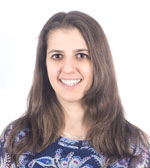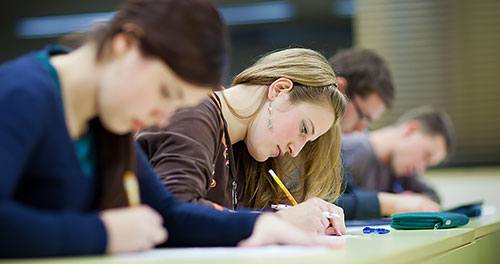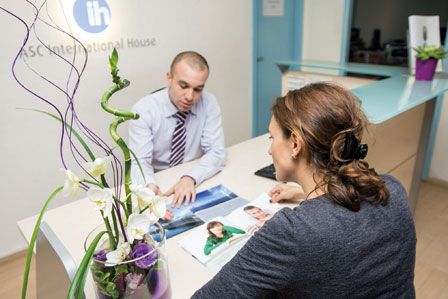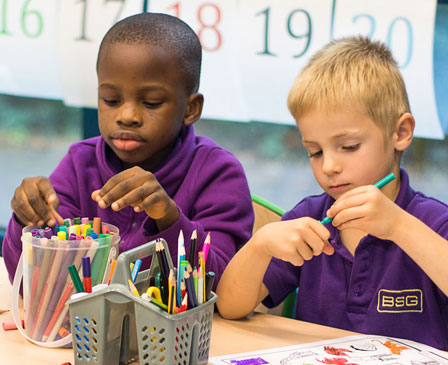 Sabine Hutcheson is an education professional with over twenty-five years’ experience in teaching and leadership in schools in Switzerland, the UK and neighbouring France. Sabine has worked as a Teacher, Education Consultant, University and Careers Advisor and, in the past eight years, has held senior leadership positions in schools in Geneva. She is currently the Head of Secondary Admissions at Geneva English School.
Sabine Hutcheson is an education professional with over twenty-five years’ experience in teaching and leadership in schools in Switzerland, the UK and neighbouring France. Sabine has worked as a Teacher, Education Consultant, University and Careers Advisor and, in the past eight years, has held senior leadership positions in schools in Geneva. She is currently the Head of Secondary Admissions at Geneva English School.

By Sabine Hutcheson, Education Consultant at TutorsPlus
As most international students are aware, those considering the US for their university degree will have to take an SAT or ACT exam. Both of these exam boards offer a standardised set of skill-based exams on English language and Math skills. The nature of the questions aims to test students on their analytical, logical and reasoning skills in a short space of time.
While the ACT test will remain the same as it has been for several years, the SAT exam has been revamped for 2016, with the first session of the new format to take place in March. Broadly speaking, according to College Board, the new test is changing to reflect the high school curriculum more closely and to stand as a better indicator of students’ readiness for university degrees. The principle is still the same, the higher the score, the greater the choice of top universities.

Submitted by Sabine Hutcheson, Education Consultant at TutorsPlus
As some readers may know, TutorsPlus is part of ASC Education Group which, for more than 40 years, has been providing high quality language training to private individuals, corporate clients and young learners in Geneva and Vaud. Having grown up with three languages in both English- and French-speaking countries, language learning is a subject near and dear to my heart. I’ve invited guest blogger Sandra Bialystok, polyglot and traveler, to share her thoughts on a topic which will surely touch most of you.
The advantages of language learning; or, what learning Italian taught Sandra Bialystok other than how to order the perfect pasta
Many years ago – when I was young and had few obligations – I went to Rome to live with my boyfriend (now my husband) and to learn Italian. My French boyfriend had been sent to Rome for his work, and after a crash course in the language, he was immediately expected to converse with the local employees. I, on the other hand, could learn the language in a more leisurely manner, even though I was eager to also become fluent.

By Sabine Hutcheson, Education Consultant at TutorsPlus
Earlier this year the Economist Intelligence Unit compiled a report for Pearson which showed the UK coming into the top 10 education systems in the world. This is a much better score than last year’s PISA report which can be partly explained by the fact that Pearson looked at the rate of students continuing into higher education; a mere detail perhaps but a significant one. This poses the question of an education system’s raison d’être. If we explore this issue, the English curriculum, on offer in many private schools in the Switzerland, certainly ticks all the boxes.
The English curriculum does not grade students in the same way they are graded in Swiss or French schools. It is based on a set of competences that each individual child acquires throughout their education. These translate into levels. At the end of primary school some children may have ideally reached a level 5, while others are at level 3. The levels pertain to a child’s acquired skills in literacy and numeracy. Because students are rated against their own progress and achievements, as opposed to a benchmark or their peers, they move on unhindered until the age of 14. At this point, they will be guided to a choice of qualifications suitable for their academic level and/or vocational aspirations, most of which can lead to university.

Here we are, the last stretch before the dreaded final exams. You have worked hard (hopefully) for the last two years and now your efforts are going to pay off. Many of you students out there will be given study leave to revise for your exams, but how should you organise yourself efficiently in order to maximise your time and performance?
First of all, let us understand that no amount of last minute revision will replace consistent work over the entire course. Having said that, if you haven’t felt confident so far or feel that you are ready to tackle those tricky bits, it isn’t too late to put some of it right. Last minute stage frights are good as they give you the boost of energy you need to make it through the final 3 months. The key is mainly organisation. For each subject, list the topics you need to cover and then for each topic, list the sub-topic. This will be enough to get you started as you will have broken down what you need to cover into small, manageable chunks. This also makes it easier to find and work examples for each subtopic. For example, in Physics, lay out the formulae and expand them to show how they connect to each concept, emphasising similarities and differences of when they are applicable. To make sure you have understood how and why to use a particular formula, introduce one change in the example and see how this affects the equation. In History, it can be a list of key events, in which case you could draw a diagram of how they are connected, then use this information to answer a practice question, using 1 or 2 sources for reference.
Page 2 of 2






